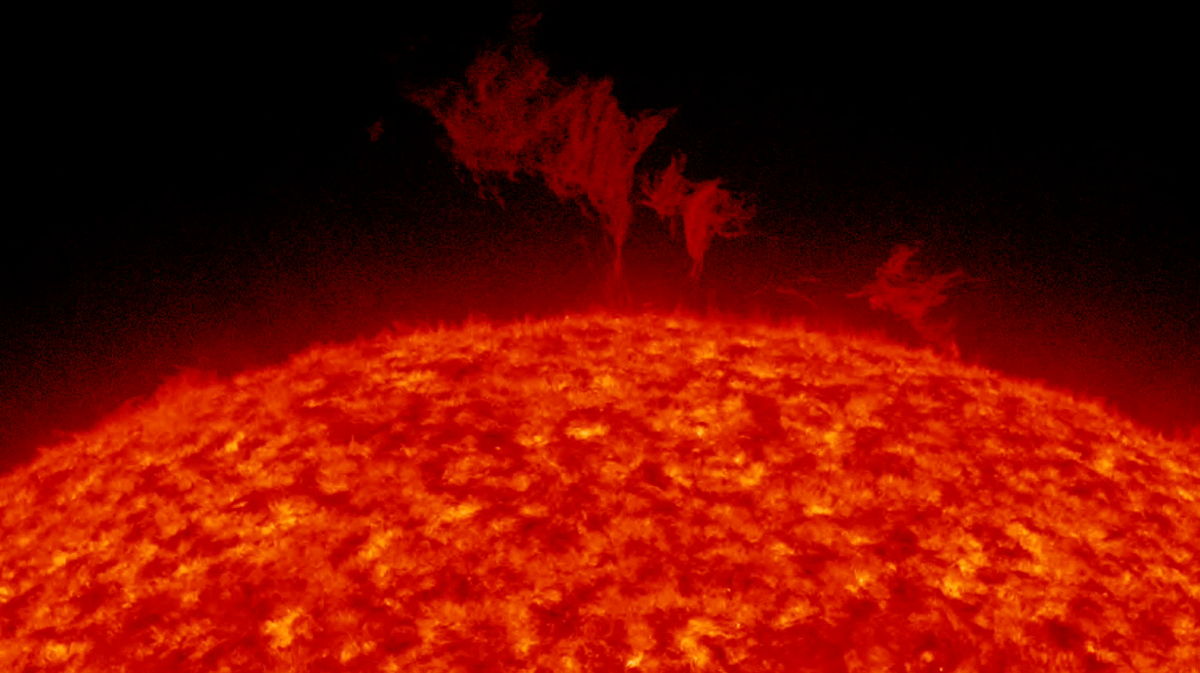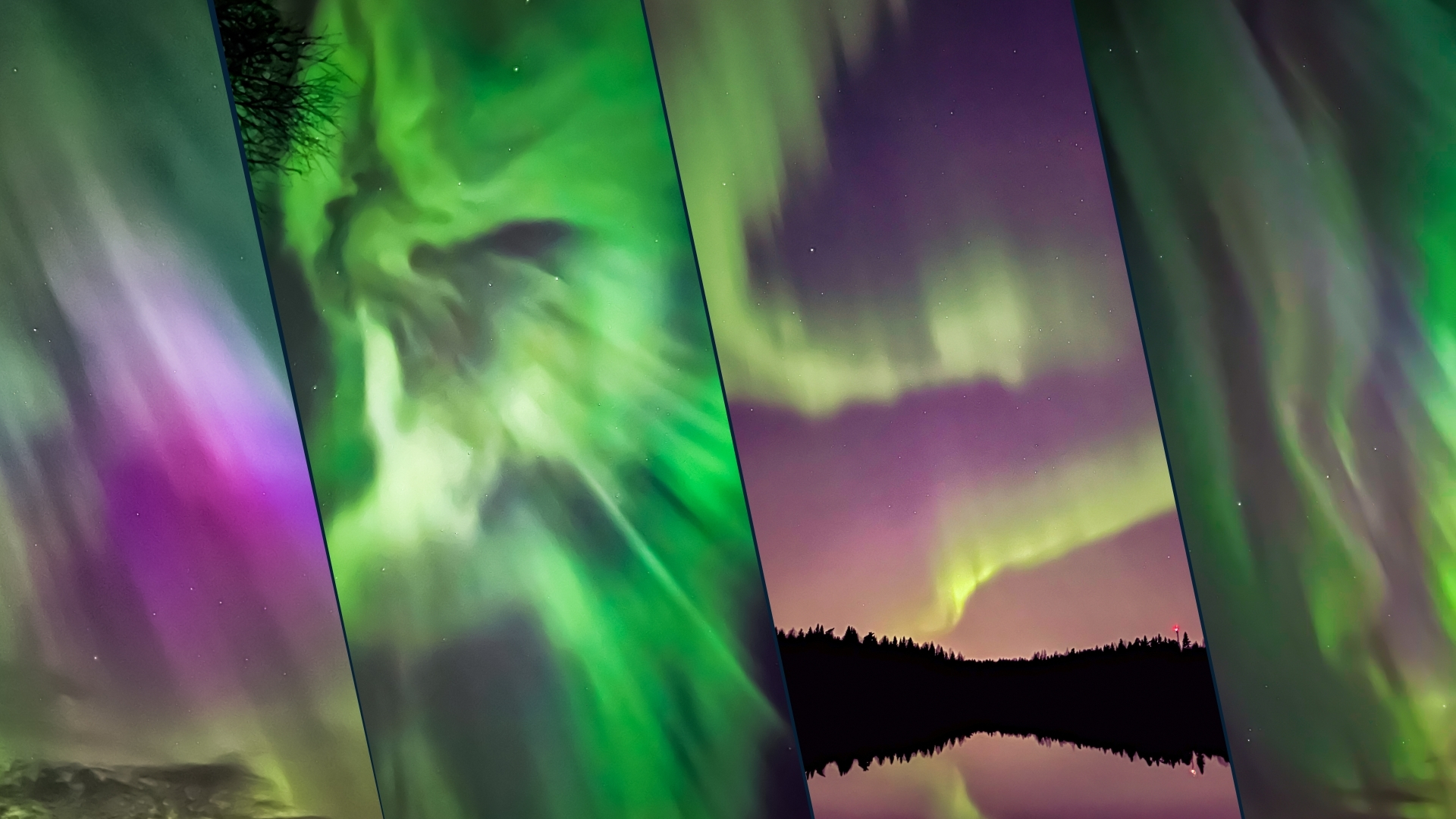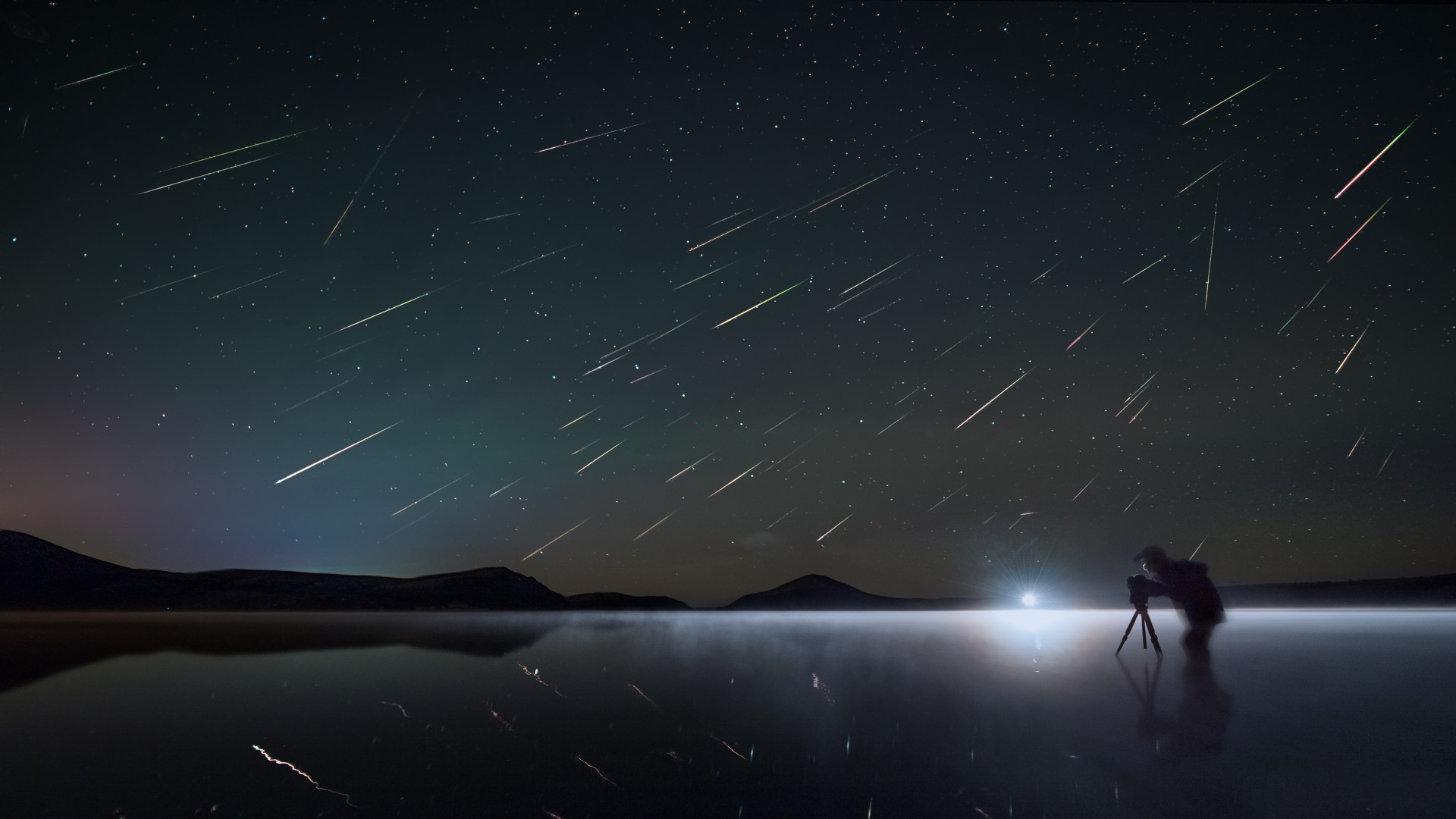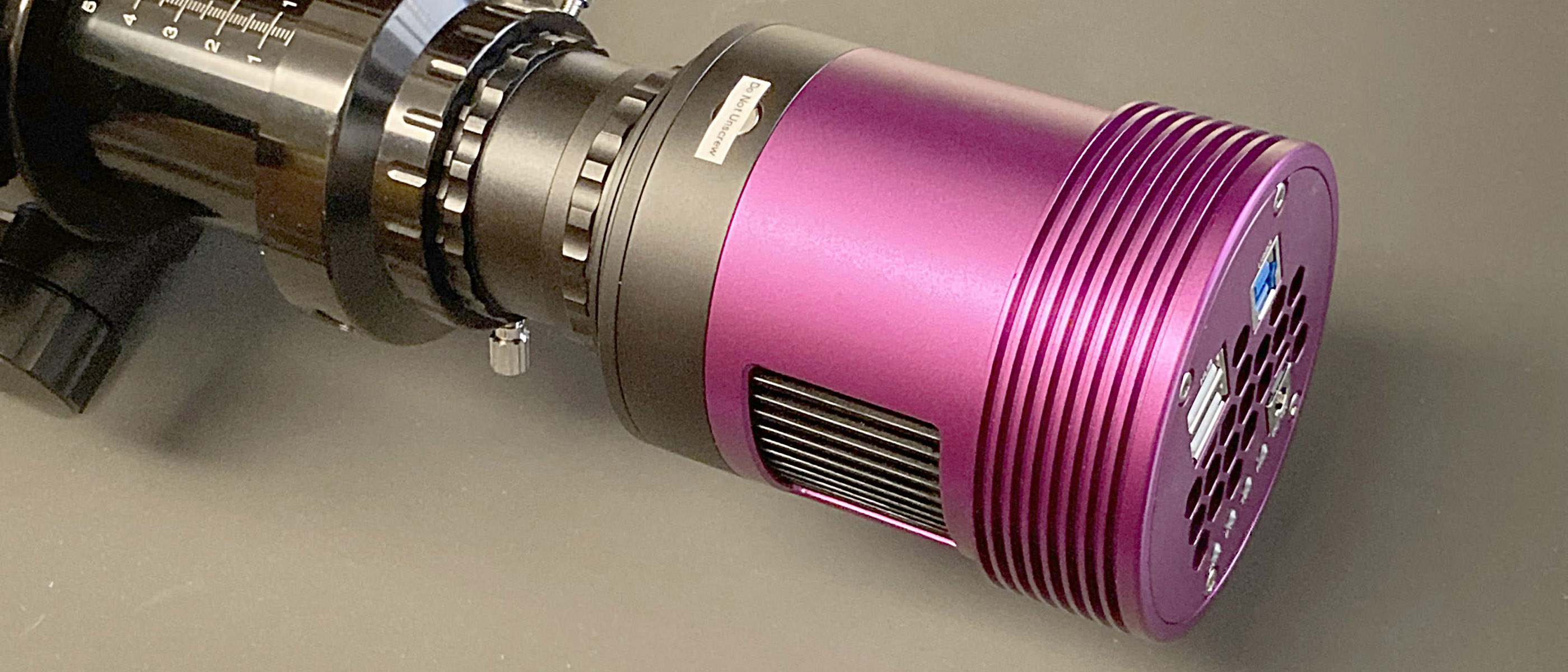
LAUNCH SITE ONE, West Texas — Seeing Earth from space apparently made a big impact on the planet's richest resident.
Billionaire Jeff Bezos flew to suborbital space with three other people Tuesday (July 20) on the first crewed mission ever launched by his spaceflight company, Blue Origin. He said he greatly enjoyed the rocket ride and microgravity flips but was most struck, as astronauts tend to be, by the thought-provoking view.
"The most profound piece of it, for me, was looking out at the Earth, and looking at the Earth's atmosphere," he said during a postflight news conference Tuesday.
Related: Jeff Bezos launches into space on Blue Origin's 1st astronaut flight
More: The top 10 views of Earth from space
That life-giving shell of air seems sizable from the ground. "But when you get up above it, what you see is it's actually incredibly thin. It's this tiny little fragile thing, and as we move about the planet, we're damaging it," Bezos said, referring to greenhouse-gas pollution. "It's one thing to recognize that intellectually. It's another thing to actually see with your own eyes how fragile it really is."
Bezos has taken some steps to help protect that fragile shell and the rest of our beleaguered planet. Last year, for example, he announced the creation of the Bezos Earth Fund, which is dedicated to fighting climate change and boosting sustainability, and pledged $10 billion to get it up and running. And he now aims to start devoting more of his time to that project — time that was recently freed up after he stepped down as CEO of Amazon.
"I'm going to split my time between Blue Origin and the Bezos Earth Fund," Bezos said during today's news conference. "And there's going to be a third thing, and maybe a fourth thing, but I don't know what those are yet. I'm not very good at doing [only] one thing."
Get the Space.com Newsletter
Breaking space news, the latest updates on rocket launches, skywatching events and more!
And Blue Origin's long-term goals have a strong environmental component, Bezos has stressed. Over the long haul, the company wants to help establish a bustling off-Earth economy, with millions of people living and working in space. Indeed, Blue Origin intends to help move most resource extraction and heavy industry off the planet, so that we don't further strip the planet and foul its soil, air and waters.
Turning such bold dreams into reality starts with relatively small steps, Bezos said — like today's first-ever crewed launch of New Shepard, the company's suborbital space tourism vehicle.
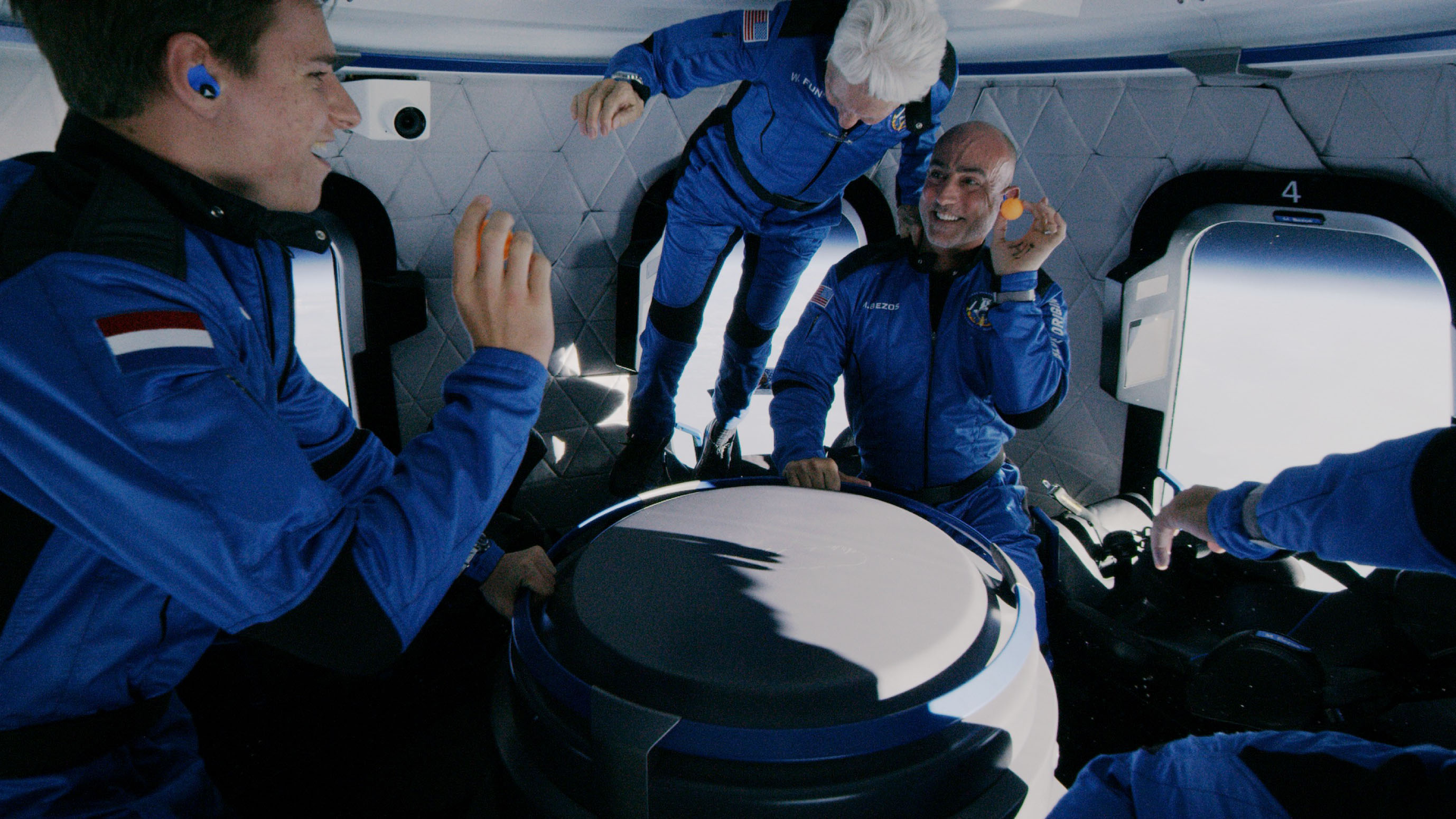
"We're going to build a road to space so that our kids and their kids can build the future. And we need to do that. We need to do that to solve the problems here on Earth. It's not about escaping," Bezos said.
"This is the only good planet in the solar system," he said. "We've sent robotic probes to all of them. This is the only good one, I promise you. So we have to take care of it. And when you go into space and see how fragile it is, you want to take care of it even more. And that's what this is about."
Mike Wall is the author of "Out There" (Grand Central Publishing, 2018; illustrated by Karl Tate), a book about the search for alien life. Follow him on Twitter @michaeldwall. Follow us on Twitter @Spacedotcom or Facebook.
Join our Space Forums to keep talking space on the latest missions, night sky and more! And if you have a news tip, correction or comment, let us know at: community@space.com.

Michael Wall is a Senior Space Writer with Space.com and joined the team in 2010. He primarily covers exoplanets, spaceflight and military space, but has been known to dabble in the space art beat. His book about the search for alien life, "Out There," was published on Nov. 13, 2018. Before becoming a science writer, Michael worked as a herpetologist and wildlife biologist. He has a Ph.D. in evolutionary biology from the University of Sydney, Australia, a bachelor's degree from the University of Arizona, and a graduate certificate in science writing from the University of California, Santa Cruz. To find out what his latest project is, you can follow Michael on Twitter.







